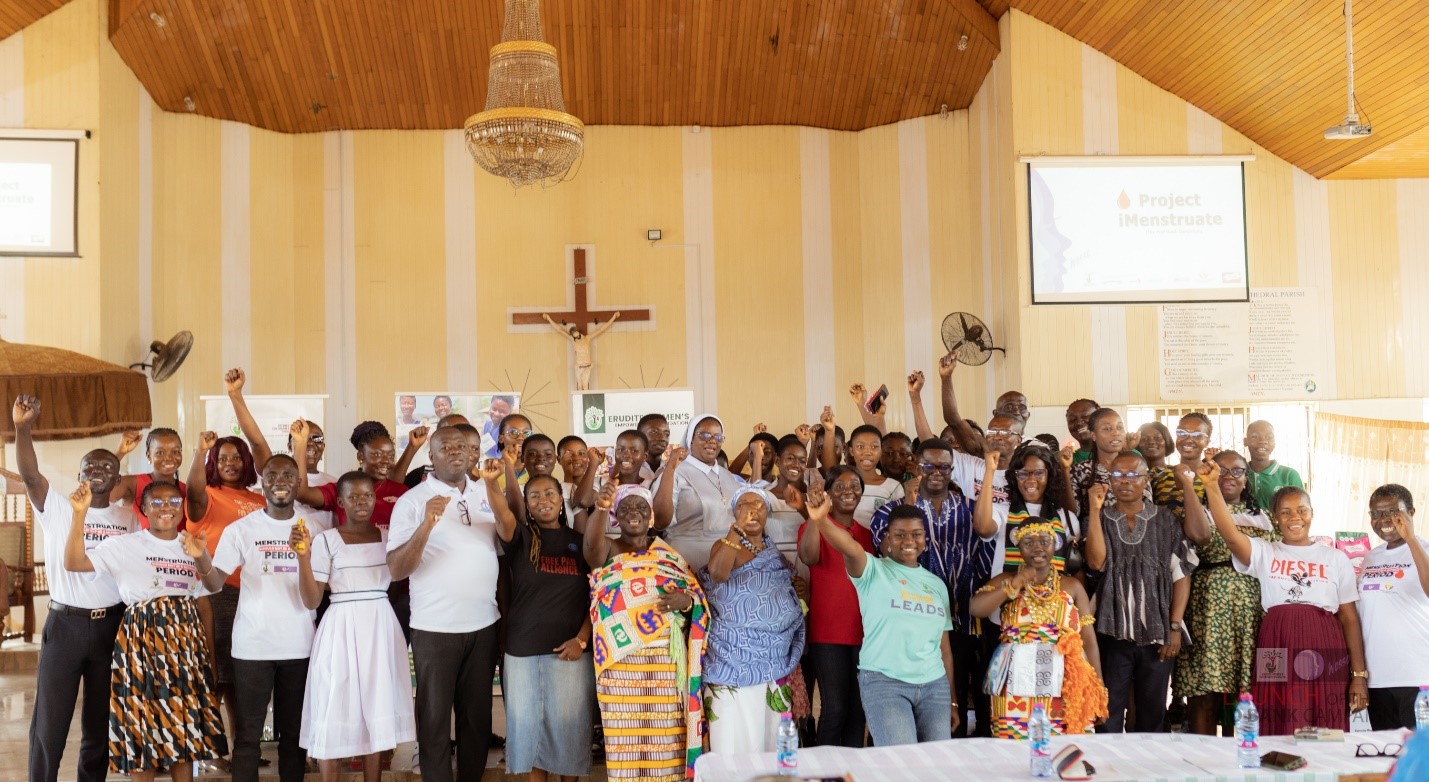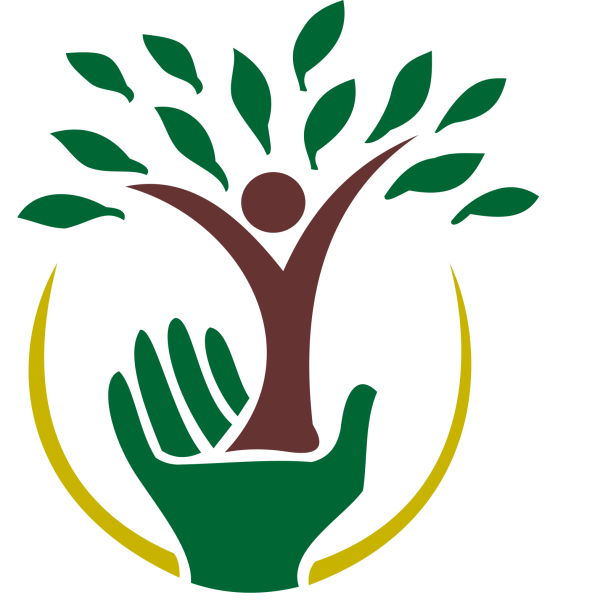Konongo, Ghana, May 28, 2025
Over 250 stakeholders, including students, educators, health professionals, parents, and community leaders, convened at St. Gabriel’s Co-Cathedral in Konongo for the official launch of the Pad Bank Campaign, an initiative by the Erudite Women’s Empowerment Foundation (EWEF) in collaboration with Women of the South Speak Out (WOSSO), the National Youth Authority (NYA), and Ecoperiod, aimed at improving menstrual hygiene access, promoting menstrual health education, and challenging long-standing stigmas around menstruation in Ghanaian society.



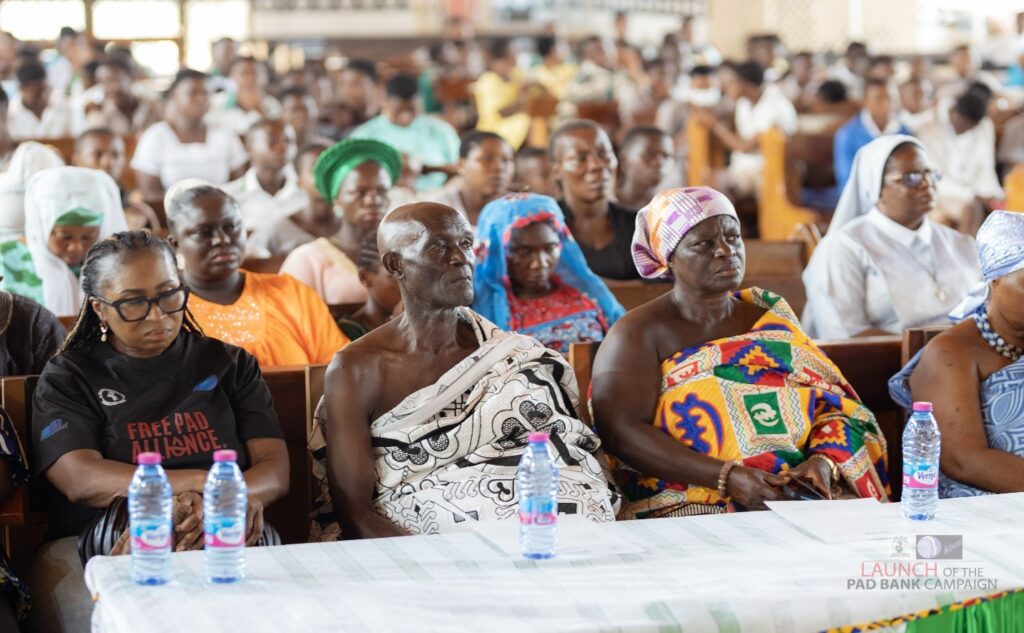
Held as part of a broader Menstrual Health Celebration, the event was designed to mark a significant step toward breaking period poverty in Asante Akyem Central and empowering girls and young women with dignity and knowledge. It brought together representatives from the Ghana Education Service, the Health Directorate, the Social Welfare Department, traditional authorities, religious leaders, and civil society actors, reinforcing the project’s inclusive, multisector approach.
Central to the launch was the presentation of key findings from EWEF’s pre-implementation survey, which was conducted in Konongo Ancilla JHS, the pilot school in the municipality. The survey provided illuminating insights into the realities girls face, ranging from limited access to sanitary pads to shame, fear, and misinformation that surround menstruation in many homes and classrooms.
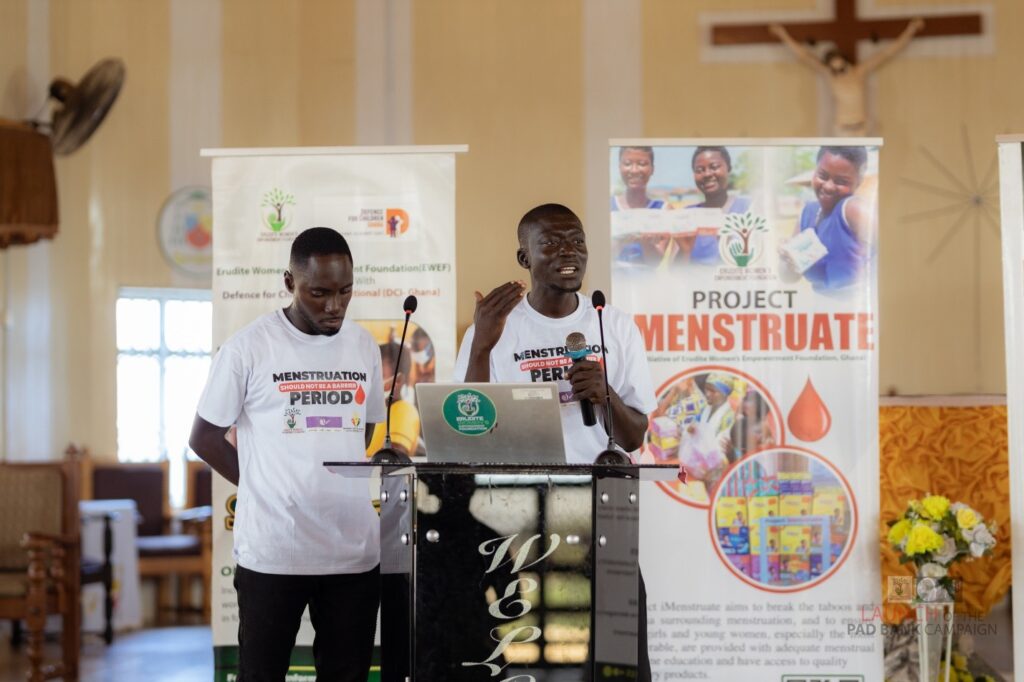
Participants listened attentively as views of girls, quoted from the survey, and highlighted their experiences: missing school due to lack of menstrual products, being shy to ask for menstrual products in school, and struggling to talk to parents about their periods. These testimonies stirred emotional responses from the audience, prompting urgent calls for structural and cultural change.
The event created space for an open-floor discussion, inviting religious leaders, parents, teachers, and students to voice their opinions, share personal experiences, and propose community-led solutions to the challenges of menstrual health. This segment encouraged inclusive and participatory dialogue, moving beyond traditional top-down communication. Participants reflected candidly on how menstrual stigma continues to affect girls’ confidence, school attendance, and emotional well-being.



Parents recounted the difficulties they face discussing menstruation with their daughters due to cultural taboos and a general lack of information. Teachers stressed the need for practical support systems in schools, such as emergency sanitary pad supplies and private changing spaces, to ensure that menstruating girls can feel safe, comfortable, and able to focus in class. Several students bravely spoke up about their experiences, calling for greater openness and less judgment from peers and adults alike.
“My fellow brothers, boys please stop mocking menstruation. We also feel embarrassed and ashamed because of it,” shared a female student from Ancilla JHS.
Religious leaders acknowledged that silence around menstruation within faith-based settings has contributed to misinformation and shame. Many expressed a willingness to use their platforms to promote education, dignity, and compassion. One religious leader encouraged greater collaboration between churches, mosques, and schools to foster a culture of empathy and inclusion.
A student from St. Mary’s SHS recounted her experience, stating that the Catholic Church in her community does not allow girls to serve at Mass during menstruation, as it is considered “unclean.”

This dialogue brought together a range of voices and perspectives, reinforcing the message that menstrual health is not solely a women’s issue, but a shared social responsibility. The open-floor format gave participants the opportunity not only to speak, but also to listen, reflect, and find common ground
Male students and teachers also contributed meaningfully to the conversation, guided by facilitators who emphasized the importance of male ally ship. Their inclusion marked a deliberate shift from past menstrual health initiatives that often excluded boys and men a critical gap that the Pad Bank Project seeks to bridge.
“I am happy this launch included male students and teachers, because most events related to menstruation I attend involve only females,” noted the Municipal Director of the Ghana Education Service


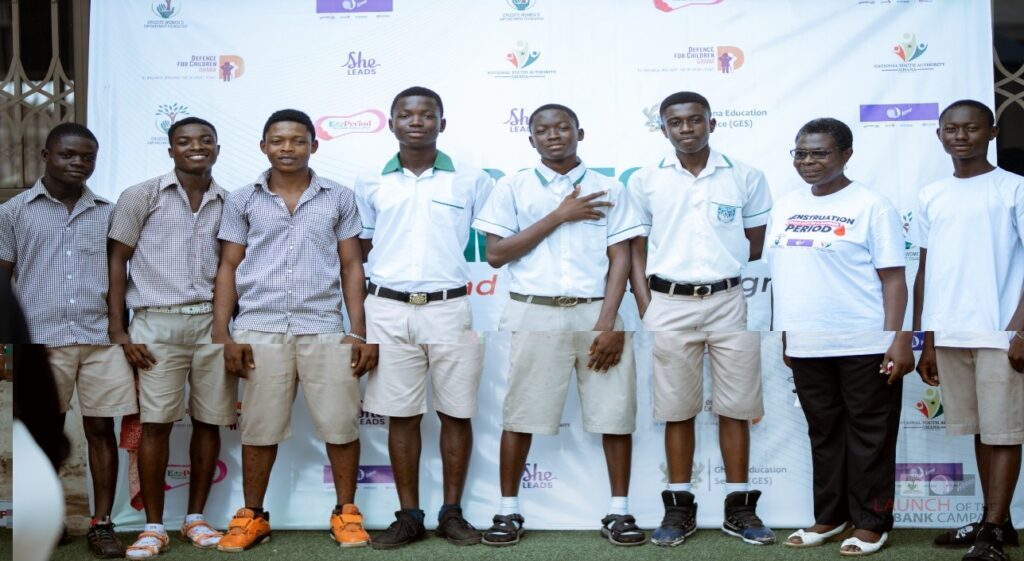
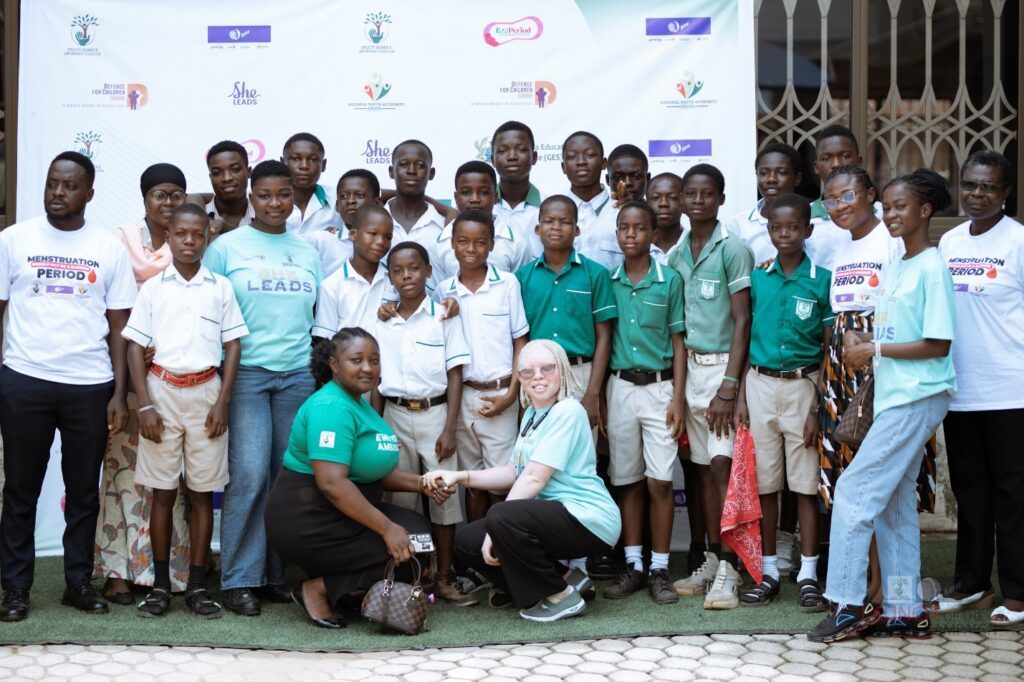
To expand the conversation beyond the event venue, EWEF partnered with a local radio station to provide live coverage and post-event interviews. It is estimated that the event’s message reached over 10,000 individuals across the municipality through both direct engagement and media channels. The coverage helped spark further conversations in communities, with several callers to the radio program requesting additional education sessions and pad distributions in their localities.
Building on the success of the launch, EWEF is taking steps to expand Pad Bank installations in more schools, institutions and communities. There are plans to integrate menstrual health education into school curricula, with regular refresher training sessions for both teachers and student leaders. The Foundation also aims to establish peer-led menstrual health clubs in schools to support continuous learning and advocacy, and to increase male engagement through partnerships with fathers’ groups, male educators, and faith leaders.
To ensure the long-term impact and sustainability of the project, EWEF intends to strengthen its monitoring and evaluation systems and mobilize additional resources through public-private partnerships. These strategies will help widen the reach of the Pad Bank Campaign across Asante Akyem Municipal and beyond.
The Pad Bank Project launch marked more than the beginning of a hygiene initiative it was a moment of collective awakening. Through the voices of students, the wisdom of traditional leaders, and the resolve of local institutions, the event signaled a united front in tackling menstrual inequality.

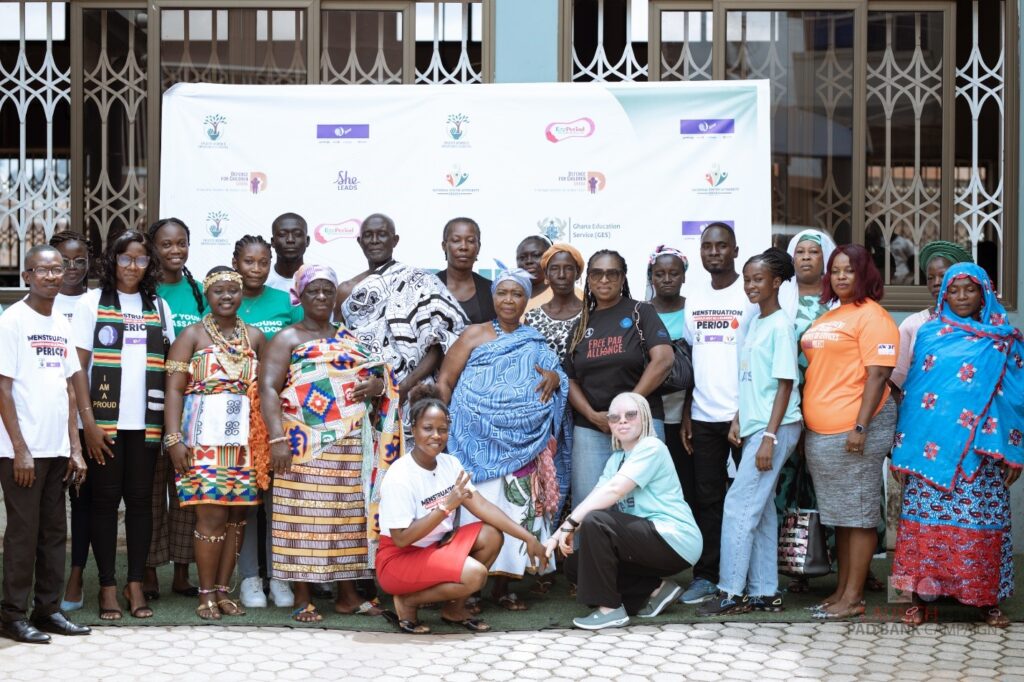
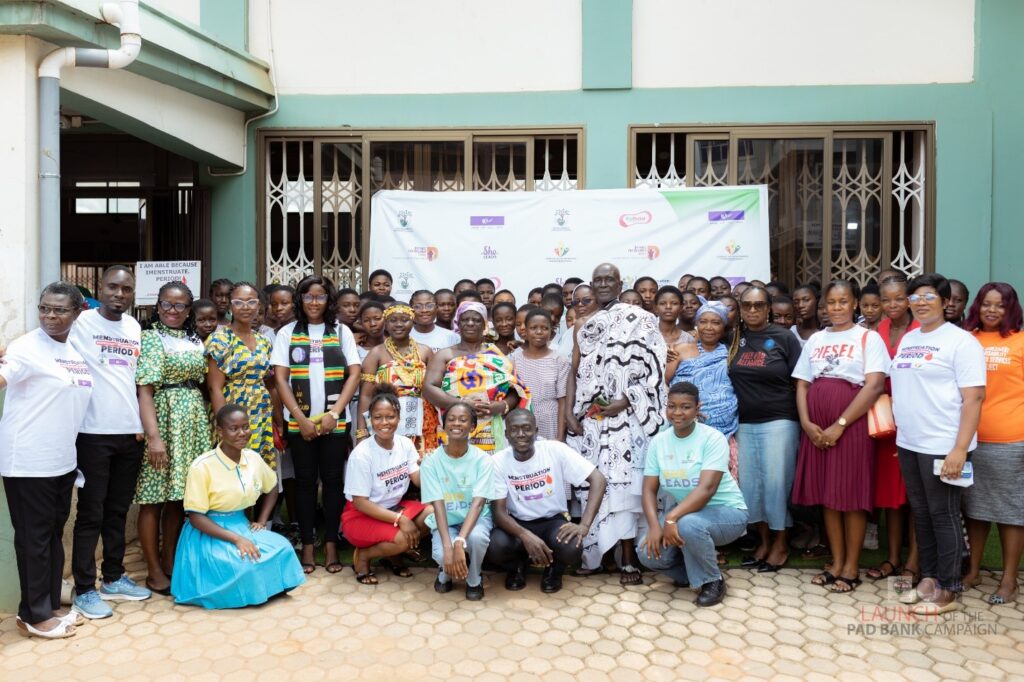
The launch ended with renewed commitments, energized participants, and a shared vision: to build a future where menstruation is no longer a barrier, but a bridge to empowerment.
